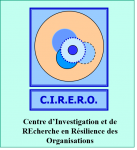PORTRAIT
Miguela Domingo Centeno holds a doctorate in educational sciences and philosophy and a doctorate in law from the Complutense University of Madrid. She also studied the philosophy of German idealism at the University of Münster (Westfallen, Germany), research methods and bioethics. As a university professor, Miguela Domingo Centeno is interested in therapeutic pedagogy and directs 4 certifying courses including 2 Masters. She was Dean of the Autonomous University of Madrid. Her initial research focuses on emotions, morals and ethics, which leads her to question emotional intelligence, the power of resilience in childhood and adolescence and the prevention of possible educational difficulties.
How have these issues led you to question resilience?
As part of my therapeutic pedagogy activities, I am in close contact with Generation Z (Gen Z) and their concerns about the present and the future. As a result, I observe on a daily basis a strong relationship of this youth to digital and social networks, with its dangers, but also shortcomings such as the culture of effort, corporate culture, loyalty, support, etc. I love this youth and I bet on it, but it also suffers from a little dehumanization: procedural behaviors, lack of empathy and awareness of other ways of seeing and thinking, etc.
Society made them selfish because previous generations, starting with mine, made their lives quite easy, gave them everything. Spanish youth are a little different from French youth because of the years of Franco's dictatorship that has long limited the evolution of morals at all levels of society: racism, xenophobia, homophobia, harassment, mockery about single-parent families are still frequent. This is still very prevalent in Spanish society. We still have to learn a lot. And, even though our government is left-wing, the most audible political trends in the public space are partly worrying.
Today, everything is resilience, we must all be resilient and this is presented in such a simple way… Resilience is actually very difficult to awaken within every human being. There are adverse circumstances that play a big role, people who can help, etc. Resilience is a complex topic.
I began to question resilience, first on my own because I had experienced difficult things that I tried to overcome. Through reading, I tried to heal myself. It is a process to change one's way of thinking towards what one has, what one holds, rather than focusing on what one has lost. We can mourn what we have lost. German idealism has allowed me to transform these personal questions about resilience into a deeper understanding of what resilience is, how to teach someone resilience.
I've been in university since I was 18. I work there and I also learn a lot from youth, from Generation Z. They, too, teach us a lot. The idea is not to overcome adversity by saying "I am resilient!" Adversity comes to you and by making myself social, I go up the slope. You may need professionals to get out of the rut that has stuck your way. Resilience should be studied a little more through a human lens.
For you, is resilience linked to particular skills or circumstances?
I defer to Rousseau's proposal: "Man is good by nature." But then society integrates it and things get complicated because it is not a happy world. Life makes you suffer because you are in particular socio-economic circumstances, because you are harassed, because you are different from others (fat, with glasses, etc.), because you do not identify with your body, etc. This is in line with Hobbes' proposal: "Man is a wolf to man".
Life is hard and not very simple. The problem of Gen Z is their lack of a culture of effort because these young people have not realized that all life is not made and that they have to do it. However, they arrive in their twenties and do not know how to do it! In my vision of resilience, help, the outstretched hand is therefore all the more necessary. In Equatorial Guinea where I worked on teaching and faculty training programs, I also helped orphanages and especially young people who wanted to learn to read and write. In general, I feel committed on a human level, with animals, the environment, etc. And it is this commitment that seems to me necessary to achieve resilience.
What is organizational resilience for you?
Organizational resilience has to do with the leaders of organizations. It is not so much the question of the charisma of the leaders that is important here, but the fact that they are surrounded by a loyal team, a team that accompanies them, that the leader protects. For me, there is no organizational resilience in a very hierarchical society. In pyramid organizations, it is rare for a superior to consider himself the equal of his collaborator. It's like Cronos syndrome: leaders are afraid that one of their competent subordinates will take their place. This is a little less the case in the civil service but within the university, private companies in Spain, it is very difficult.
At my level, I think I am a resilient person in the environment of my class, with my colleagues. However, at the level of the university, the company, etc., there is no organizational resilience because there are individual fears, for lack of flexibility at this scale, etc. There is a fundamental theme today: the promotion of mediocrity. Today, however, high positions are partly held by people who are incompetent to take charge of them. I worked 8 years as Dean and I left my health there trying to understand what those above me were doing. There is not a team that does not say it is ready to reform the system but we have more and more situations of school failure, bullying, the level is very low, the organic laws for education change according to political colors, etc.
There could be organizational resilience at the level of a classroom, a court, etc. But at a general level, at the macro-systemic level, these are isolated groups and can still have problems. You make your microsystem with your teams but afterwards, the Leviathan of society will not let you go further. You can do this in small groups on small projects or themes, but not at the general level. If you try to go beyond that, you run up against the established order and put yourself in trouble. Finally, for small groups to achieve resilience, it is a fight against titans, like Don Quixote in front of his windmills! There are times when you get tired and give up because your mental health is at stake too. Resilience is a beautiful and incredible concept, but it comes at a price: the energy of its wearers. In this sense, it is also linked to care concept.


